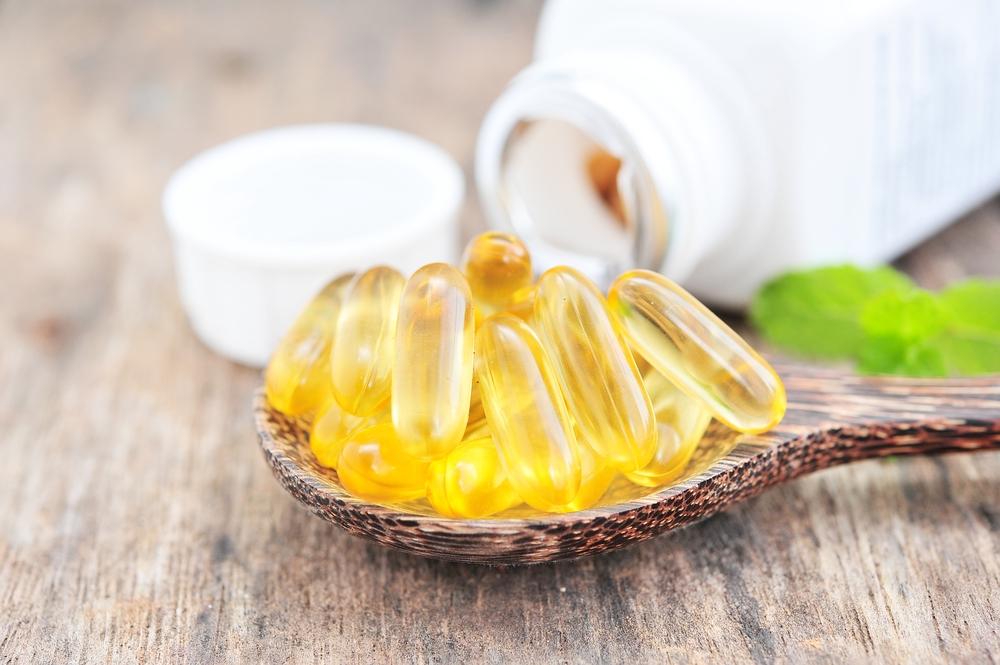
Diabetes is originally a Greek word that means “to siphon” and Mellitus is of Latin origin that means sweet. These root words reflect how diabetes seem to rapidly drain fluid from the affected individual. Diabetes is a major public health epidemic despite recent advances in both pharmaceutical and technological treatment options. ‘Diabetes reversal’ is a term that has appeared in both scientific and lay press articles; ‘remission’ has also been used. A significant number of studies indicate that diabetes reversal is achievable using bariatric surgery, while other approaches, such as low-calorie diets (LCD) or carbohydrate restriction (LC), have also shown effectiveness in an increasing number.
As the prevalence of diabetes grows, it’s understandable that more people are consuming dietary supplements to reduce their risk of the disease. The nutritional management of a diabetic patient goes beyond being only a source of nutrients; it is the first time of a diabetic’s general treatment. A balanced diet not only involves glycemic control, but it also affects the entire metabolism, preventing the progression of diabetes and concomitant complications. Insulin is not a cure for diabetes; it is a treatment. It enables a diabetic to burn sufficient carbohydrates, so that proteins and fats may be added to the diet in sufficient quantities to provide energy.
Recent years witnessed an upsurge in the use of nutraceuticals, nutritional and natural in therapeutics at a global level. Nutraceuticals are non-specific biological therapies including botanicals, vitamins, antioxidants, minerals, amino acids, and fatty acids, which are used to promote wellness, prevent malignant processes, and control symptoms. A nutraceutical is food with a medical health benefit, including preventing and treating disease. Nutraceuticals also refer to natural functional/medical foods or bioactive phytochemicals that have health-promoting, disease preventing, or medicinal properties.
HOW CAN YOU AVOID DIABETES?
Progressing from prediabetes to diabetes isn’t inevitable. Although you can’t change certain factors like your genes or age, several lifestyle and dietary modifications may reduce your risk.
- Cutting down on carbs:
The quantity and quality of your carb intake are both important factors to consider when making dietary changes to help prevent diabetes. Managing carb intake and choosing carbs that are high in fiber are likely better solutions for preventing diabetes than just limiting highly processed carbs. Lean proteins like fish and healthy fats from olive oil, avocado, nuts, and seeds also have less of an effect on blood sugar.

- RATIONING YOUR POTION:
Eating portion sizes appropriate for your needs may also help prevent diabetes. Eating too much food at one time has been shown to cause higher blood sugar and insulin levels in people at risk of diabetes. Conversely, eating smaller portions may lead to reduced calorie intake and subsequent weight loss, which may, in turn, lower your risk of diabetes.

- HIGH FIBER DIET:
Eating plenty of fiber is beneficial for gut health and weight management. It may also help prevent diabetes. Soluble fiber and water form a gel in your digestive tract that slows down food absorption, leading to a more gradual rise in blood sugar. Thus, eating more soluble fiber may reduce fasting blood sugar and insulin levels.

- Physical activity:
Doing physical activity regularly may help prevent diabetes. Exercise increases the insulin sensitivity of your cells, meaning that you require less insulin to manage your blood sugar levels. Many types of physical activities have shown to reduce insulin resistance and blood sugar in adults who are prediabetic or has Type 2 diabetes. These include aerobic exercise, high-intensity interval training (HIIT), and strength training.

- H²O as your go-to beverage:
Sugary beverages like soda and sweetened fruit juice have been linked to an increased risk of both type 2 diabetes and latent autoimmune diabetes in adults (LADA). Increased water intake may lead to better blood sugar management and insulin response too.

- Tracking Vitamin D levels:
Vitamin D is important for blood sugar management. Maintaining adequate vitamin D levels is important for your health, especially if you’re deficient. Vitamin D supplements may improve many aspects of blood sugar management in people with prediabetes.

- A BIG NO-NO TO JUNK FOOD:
Highly processed foods have undergone significantly more processing and often contain added sugars, unhealthy fats, and chemical preservatives. Research associates a diet high in ultra-processed foods with a higher risk of type 2 diabetes. Cutting back on packaged foods that are high in vegetable oils, refined grains, and additives may help reduce your risk of diabetes.

Although you can’t change certain factors like your genes or age, several lifestyle and dietary modifications may reduce your risk.
- Shedding the extra fat:
Carrying extra weight may increase your risk of type 2 diabetes. Visceral fat – excess weight in your midsection and around your abdominal organs is associated with insulin resistance, inflammation, prediabetes, and type 2 diabetes. Many weight loss strategies exist. Preparing a balanced plate with non starchy vegetables, lean proteins, complex carbs, and healthy fats is a great place to start.

- Quit smoking:
Smoking links to type 2 diabetes. While the mechanisms aren’t fully understood, it’s thought that smoking may increase insulin resistance and inhibit insulin secretion.

- Caffeine:
Daily coffee intake reduces type 2 diabetes risk by up to 54 percent, with the greatest effect generally seen in people with the highest consumption. Daily green tea intake to a lower risk of type 2 diabetes. Coffee and tea have antioxidants known as polyphenols that may help protect against diabetes.

THE ROLE OF NUTRACEUTICALS IN DIABATES
In recent years, there is a growing interest in nutraceuticals that provide health benefits and are alternatives to modern medicine. By using nutraceuticals, it may be possible to reduce or eliminate the need for conventional medications, reducing the chances of any adverse effect such as diabetes mellitus.
Eating portion sizes appropriate for your needs may also help prevent diabetes. Eating too much food at one time has been shown to cause higher blood sugar and insulin levels in people at risk of diabetes.
Nutritional medical treatment can be an important part of the medical surveillance of the diabetic patient; the diet needs to provide adequate energy to achieve a reasonable weight and adequate growth and development.
Nutraceuticals have received considerable interest because of their presumed safety and potential nutritional and therapeutic effects. A place for nutraceuticals in clinical practice is emerging, but important pharmaceutical and clinical issues need to be addressed by further research.
| Nutraceuticals | Mechanism of action |
|---|---|
| L-carnitine | Promotes insulin sensitivity and hypolipidemic actions |
| α-Lipoic acid | Treatment of diabetic neuropathy and degenerative neuronal disease |
| Berberine | Hypoglycemic and hypolipidemic actions |
| ω-3 | Anti-arrhythmic effect and decrease of triglycerides |
| Vitamin E | Deficiency of vitamin E have been associated with increased incidence of diabetes |
| Chromium | · Increases insulin sensitivity · Improves glucose tolerance |
| Vanadium | · Decreased fasting blood glucose levels · Acts similarly to insulin in transporting glucose into the cells |
| Green tea | Epigallocatechin gallate, present in tea increases insulin activity and prevents oxidative damages, responsible for the hypoglycemic activity |
| Coenzyme Q10 | Promising nutritional intervention for insulin resistance |
| Onion | Lowers blood glucose level and has potent antioxidant activity, which may account for the hypoglycemic potential |
| Garlic | Has strong antioxidant activity and rapid reactivity with thiol-containing proteins responsible for the hypoglycemic property |
| Brown mustard | Increases the concentration of hepatic glycogen and glycogenesis and suppressed the activity of glycogen phosphorylase and gluconeogenic enzymes, leading to a reduction in glycogenolysis and gluconeogenesis |
| Indian blackberry | It enhances serum insulin activity and exhibits norm glycemia and better glucose tolerance |
| Neem | Inhibits the action of epinephrine on glucose metabolism, resulting in increased utilization of peripheral glucose and exhibits hypoglycemic activity without altering the serum cortisol concentration |
EDITOR’S NOTE: This article is for health education and does not replace medical advice from your medical practitioner.
Nutritional medical treatment is a very important part of the medical surveillance of the diabetic patient; the diet needs to provide adequate energy to achieve a reasonable weight and adequate growth and development.
References
1. Dean L, McEntyre J. The Genetic Landscape of Diabetes [Internet]. Bethesda (MD): National Center for Biotechnology Information (US); 2004. Chapter 1, Introduction to Diabetes. 2004 Jul 7.
2. Sapra A, Bhandari P. Diabetes Mellitus. [Updated 2021 Sep 18]. In: StatPearls [Internet]. Treasure Island (FL): StatPearls Publishing; 2022 Jan
3. Hallberg, S. J., Gershuni, V. M., Hazbun, T. L., & Athinarayanan, S. J. (2019). Reversing Type 2 Diabetes: A Narrative Review of the Evidence. Nutrients, 11(4), 766.
4. Nimesh S, Nimesh VD. Nutraceuticals in the management of diabetes mellitus. Pharm Pharmacol Int J. 2018;6(2):114-120.
5. Derosa, G., Limas, C. P., Macías, P. C., Estrella, A., & Maffioli, P. (2014). Dietary and nutraceutical approach to type 2 diabetes. Archives of medical science: AMS, 10(2), 336–344.
6. Venkatakrishnan, K., Chiu, H. F., & Wang, C. K. (2019). Popular functional foods and herbs for the management of type-2-diabetes mellitus: A comprehensive review with special reference to clinical trials and its proposed mechanism. Journal of Functional Foods, 57, 425-438.
7. Chintale Ashwini, G., Kadam Vaishali, S., Sakhare Ram, S., Birajdar Ganesh, O., & Nalwad Digambar, N. (2013). Role of nutraceuticals in various diseases: A comprehensive review. Int. J. Res. Pharm. Chem, 3, 290-299.
8. Kochhar, A., & Pathak, N. (2018). Nutraceutical based approach to combat diabetes mellitus.
Current Research in Diabetes & Obesity Journal, 8(3), 48-51.










